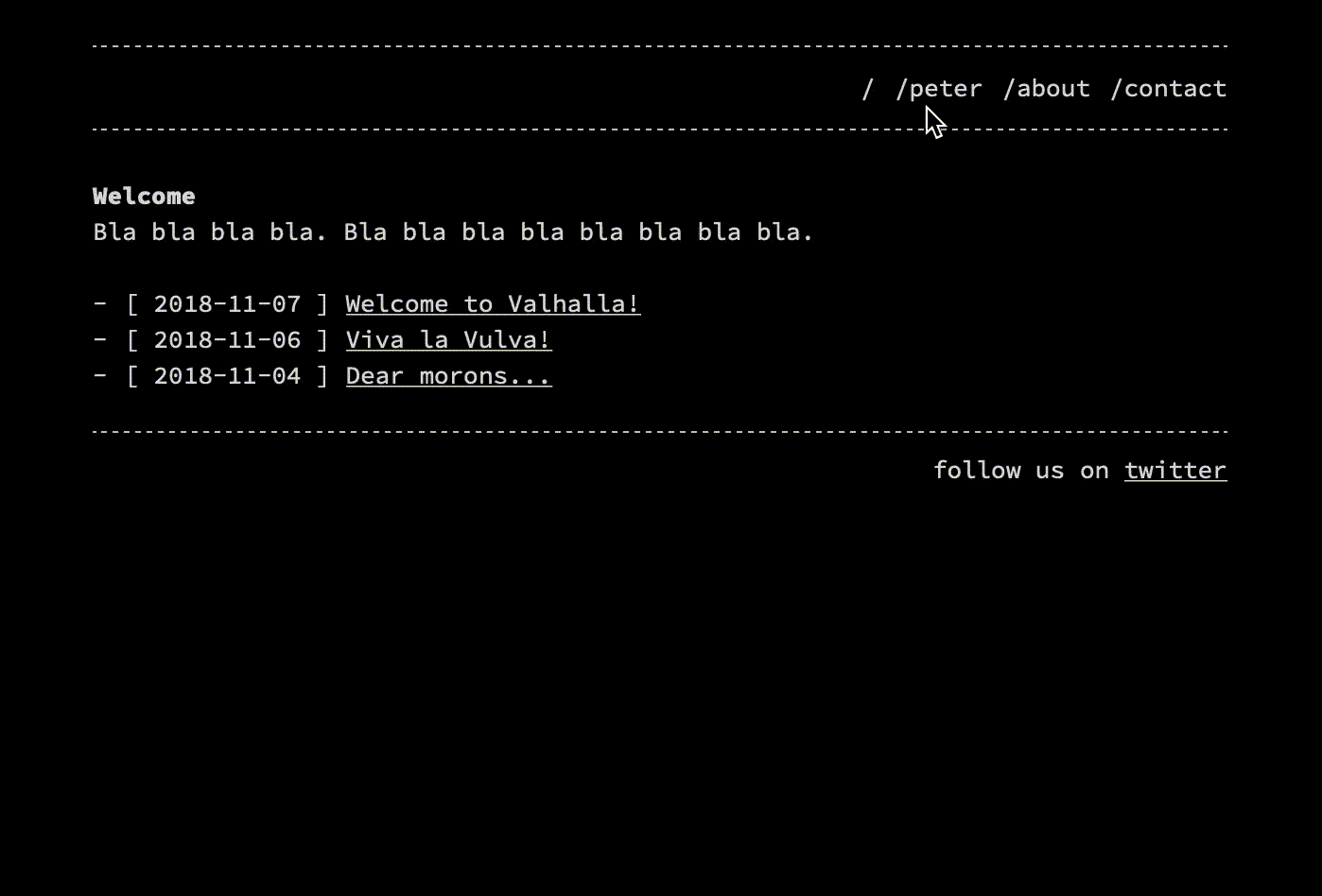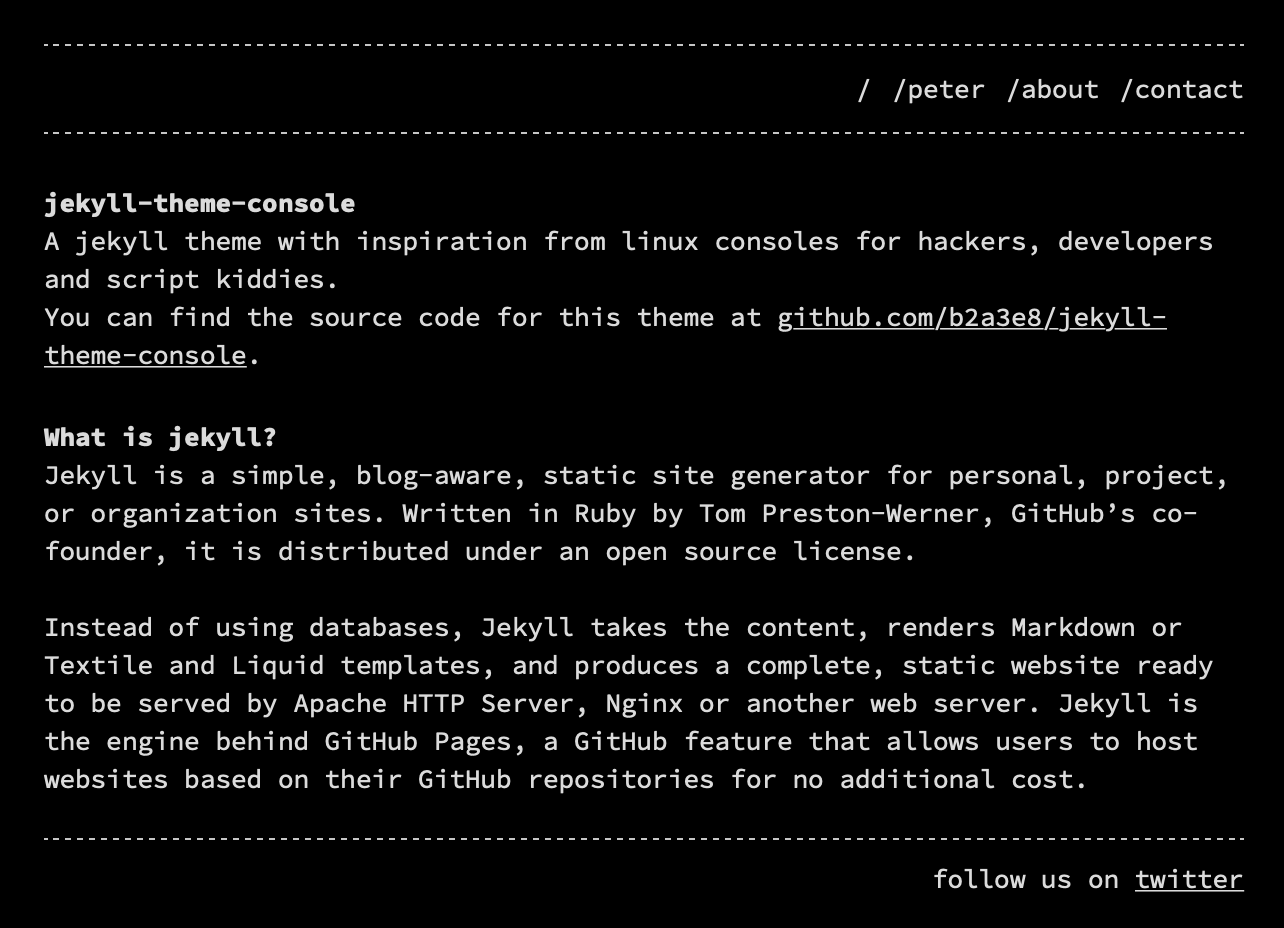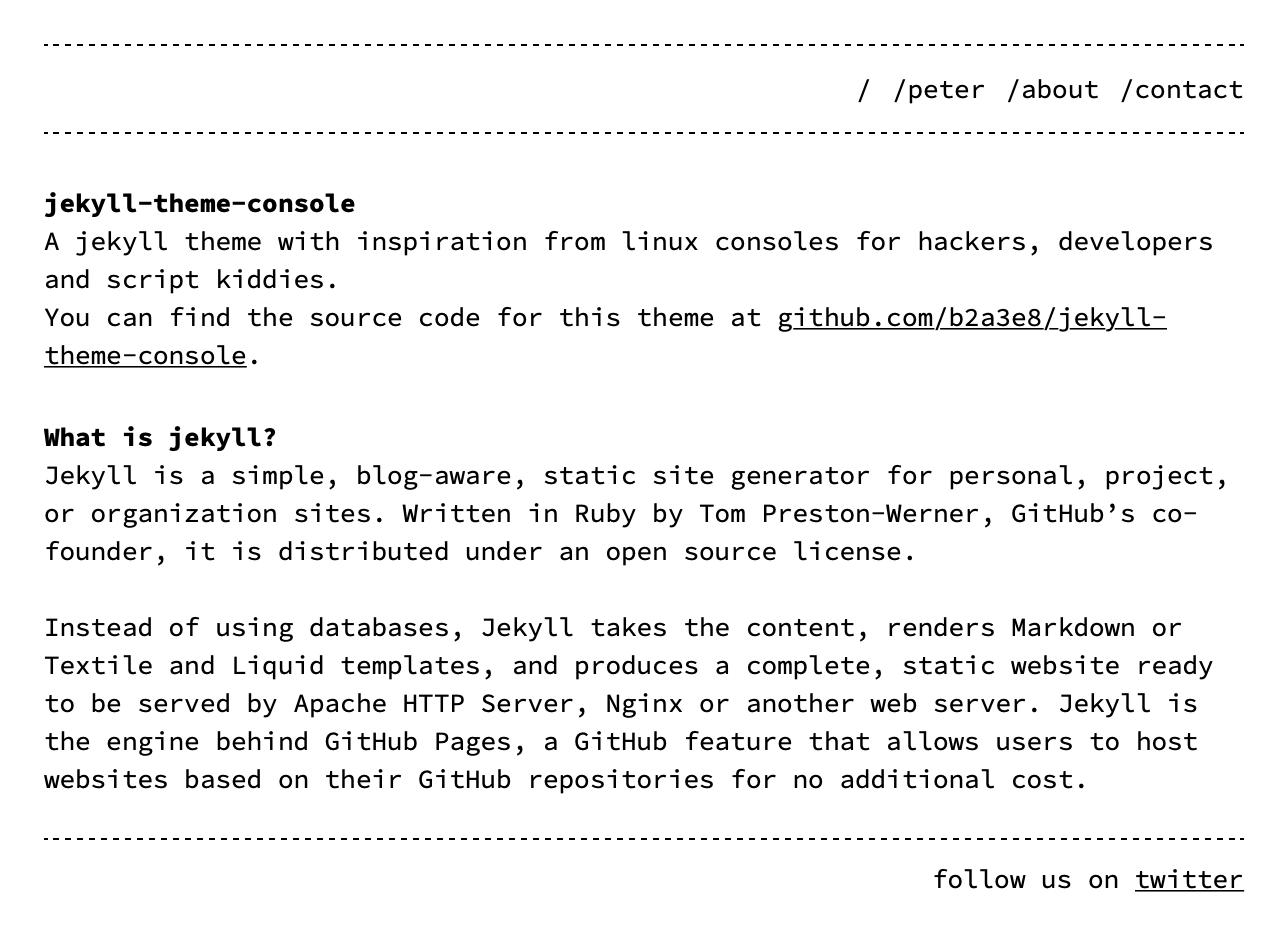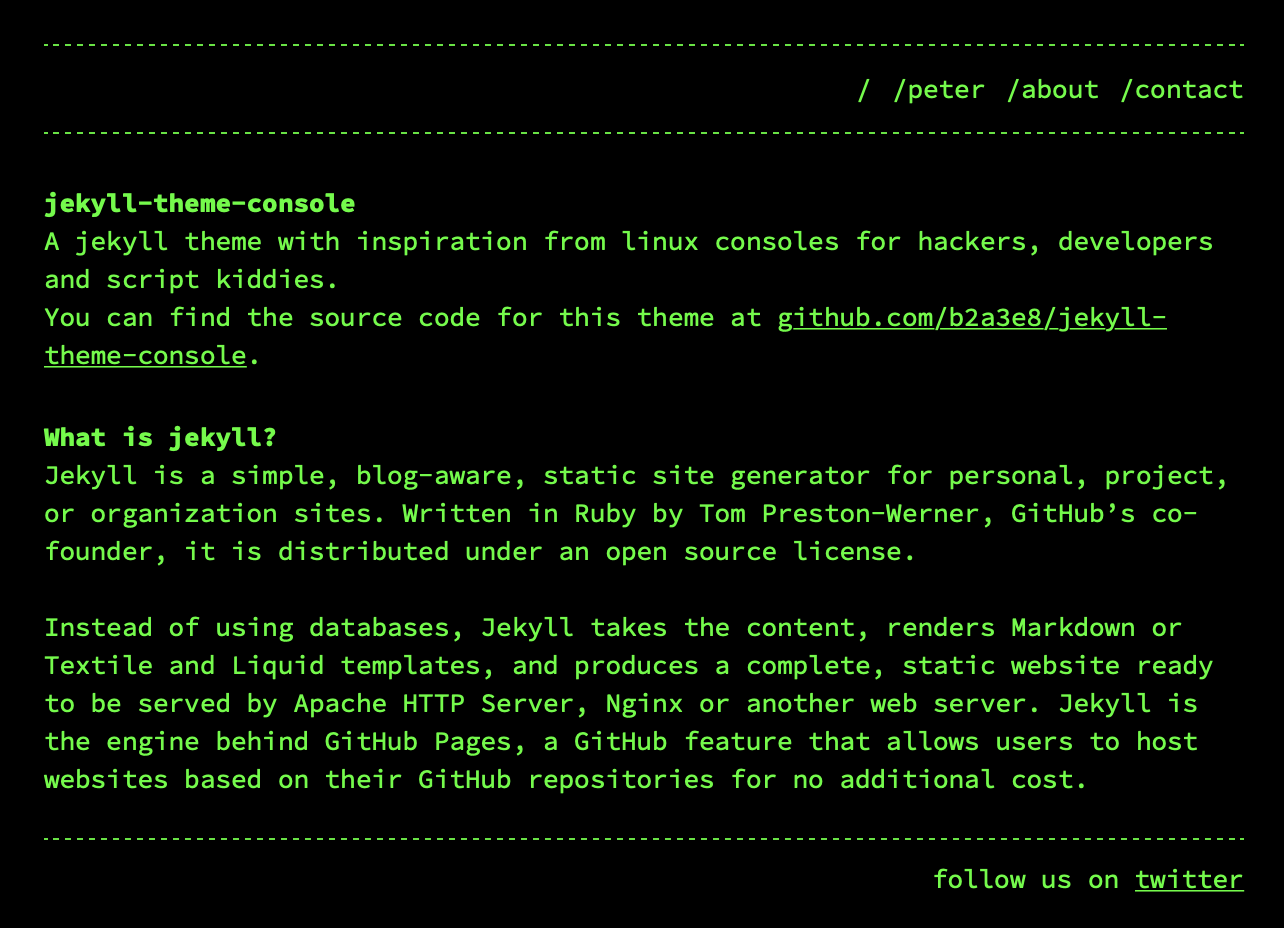jekyll-theme-console
A minimal, console‑inspired Jekyll theme for hackers, developers and other cool kids.
Demo
Note: The theme also includes a Nord variant (style: nord).
Features
- Four styles:
dark(default),light,hacker,nord - Optional auto light/dark via
prefers-color-scheme - Strict, extendable Content Security Policy
- Optional Google Fonts (disable for full self‑hosting)
- Generic analytics/tracker include (Matomo, Plausible, etc.)
- Simple header navigation via
header_pages - Works as a RubyGem theme or GitHub Pages remote theme
Quickstart
If you are new to Jekyll, skim the official docs: https://jekyllrb.com/docs/
GitHub Pages (remote_theme)
Add to your site's _config.yml:
remote_theme: b2a3e8/jekyll-theme-console
# Optional but recommended
plugins:
- jekyll-seo-tagTip: For full local builds with a remote theme, you may need the jekyll-remote-theme plugin.
Gem-based installation
- Add to your
Gemfile:
gem "jekyll-theme-console"- Install and enable the theme:
bundle# _config.yml
theme: jekyll-theme-console
plugins:
- jekyll-seo-tagTo update later: bundle update.
Configuration
Add these to _config.yml as needed:
-
header_pages: list of page paths to show in the top menu -
footer: HTML string rendered in the footer -
style:dark(default),light,hacker, ornord -
listen_for_clients_preferred_style:trueto auto‑switch using the OS preference -
disable_google_fonts:trueto avoid requests to Google Fonts -
tracking: generic tracker configuration (see Security & CSP below) -
csp_extra: extra CSP directives to append to the built‑in policy
Example:
header_pages:
- index.md
- about.md
style: dark # dark (default), light, hacker, or nord
listen_for_clients_preferred_style: true # false (default) or true
footer: 'follow us on <a href="https://twitter.com/xxx">twitter</a>'
disable_google_fonts: false
# Generic tracking (optional; loads only in production)
# tracking:
# script_src:
# - https://cdn.example.com/tracker.js
# async: true # default true
# defer: false # default false
# # Optional inline init snippet (requires CSP allowance if used)
# # init: |
# # window.myTracker=window.myTracker||function(){(window.myTracker.q=window.myTracker.q||[]).push(arguments)};
# # myTracker('init', { siteId: '12345' });Front matter
Additional page variables supported by the theme:
-
title: page title -
lang: page language (defaults toen) -
robots: value for the robots meta tag (e.g.,NOINDEX)
Customization
Follow these steps to customize:
- Fork this repository (use as a theme or directly as your site)
- Edit templates in
_layoutsfor HTML changes - Edit styles in
_sassandassets- Global variables (font size, container width) live in
_sass/base.scss - Style‑specific variables are in
_sass/_dark.scss,_sass/_light.scss,_sass/_hacker.scss,_sass/_nord.scss - Fonts are loaded with
<link>tags; setdisable_google_fonts: trueto avoid external font requests
- Global variables (font size, container width) live in
Optional tweaks:
-
Enable Sass compression in
_config.yml:sass: style: compressed
-
Add
jekyll-feedto generate an Atom/RSS feed.
Security & CSP
The theme ships with a strict, practical Content Security Policy. By default it allows:
- self‑hosted content, plus images from
https:anddata:URIs - Google Fonts (unless disabled)
Extend the policy as needed via _config.yml:
csp_extra: "frame-src https:;"Examples:
-
Matomo at
https://analytics.example.com:tracking: script_src: - https://analytics.example.com/matomo.js # If you add an inline init snippet via `tracking.init`, also include 'unsafe-inline' in script-src. csp_extra: "script-src 'self' https://analytics.example.com 'unsafe-inline'; connect-src 'self' https://analytics.example.com; img-src 'self' https://analytics.example.com;"
-
Plausible at
https://plausible.example.com:tracking: script_src: - https://plausible.example.com/js/plausible.js csp_extra: "script-src 'self' https://plausible.example.com; connect-src 'self' https://plausible.example.com;"
Tip: To remove the top border in the menu:
.menu { border-top: none; }Development
This repository is a standard Jekyll site for local development of the theme.
Docker (recommended)
docker compose up --buildOpen http://localhost:4000.
Local (Ruby/Bundler)
bundle install
bundle exec jekyll serveOpen http://localhost:4000.
When the theme is released, only files in _layouts, _includes, _sass, and assets tracked by Git are bundled. To include additional paths, edit the regexp in jekyll-theme-console.gemspec.
License
Open source under the MIT License.



